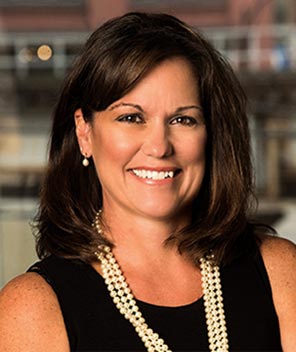.png) In the complex and emotionally charged field of divorce, referrals play a critical role in connecting clients with the specialized support they need. However, not all referral practices are created equal. While the idea of exchanging referrals—where one professional refers a client with the expectation of receiving a referral in return—may seem harmless, it can have unintended consequences. Quid pro quo referrals often prioritize professional reciprocity over what truly matters: the client’s best interests.
In the complex and emotionally charged field of divorce, referrals play a critical role in connecting clients with the specialized support they need. However, not all referral practices are created equal. While the idea of exchanging referrals—where one professional refers a client with the expectation of receiving a referral in return—may seem harmless, it can have unintended consequences. Quid pro quo referrals often prioritize professional reciprocity over what truly matters: the client’s best interests.
The value of a referral should never be measured by what the referring professional might gain but by its impact on the client’s outcome. This is especially true in divorce cases, where specialized expertise from professionals like Certified Divorce Lending Professionals (CDLP®), mediators, attorneys, and financial planners can make a profound difference. Referrals should be rooted in the client’s needs and the expertise of the referred professional.
The risks become clear when referrals are made purely out of a sense of reciprocity. Misdirected referrals can lead to mismatches between the client’s needs and the professional’s capabilities. For example, a divorcing client seeking guidance on retaining the marital home may be referred to a general financial advisor rather than a CDLP® specializing in structuring equity buyouts and navigating mortgage qualifications. This compromises the quality of service and can erode the trust clients place in their advisors.
Trust is the cornerstone of any professional relationship, and misguided referrals can fracture that trust. Clients rely on their divorce professionals to guide them toward the best possible resources, especially during a time of vulnerability. When referrals are made based on professional relationships rather than expertise, clients may feel their needs are overlooked, leading to dissatisfaction and potentially poor outcomes. The consequences can be long-lasting, as inadequate advice on issues like mortgage strategies or property division can leave clients in a financially precarious position.
By contrast, non-quid pro quo referrals elevate the client’s needs above all else, fostering better outcomes and more meaningful professional relationships. When a mediator refers a client to a CDLP®, it is because they recognize that the client’s mortgage-related challenges require a specialist’s insights. Similarly, an attorney who connects a client with a financial planner focused on post-divorce budgeting ensures that the client’s long-term financial health is prioritized. These client-centered referrals reflect a deep understanding of the professional network and a commitment to achieving the best possible results for the client.
This approach benefits clients and enhances the credibility of the referring professional. Referrals based on genuine expertise signal to clients and colleagues alike that the professional is knowledgeable, trustworthy, and committed to excellence. Over time, this credibility strengthens professional networks, fostering a culture of collaboration and mutual respect.
To build such a culture, divorce professionals must take intentional steps. First, it is essential to cultivate a network of specialists and invest time in understanding their unique skills and expertise. This ensures that referrals are made thoughtfully and with the client’s needs in mind. Professionals should also take the time to explain to clients why a specific referral is being made, highlighting the specialized knowledge that makes the referred professional the right fit for their situation.
Collaboration is another vital component. Divorce professionals can better understand each other’s areas of expertise and identify partnership opportunities by working together. Joint workshops, webinars, and case studies are excellent ways to showcase the value of collaborative efforts while educating clients and peers about the benefits of specialized knowledge.
A real-life example underscores the power of non-quid pro quo referrals. Imagine a divorcing client faced with the financial complexities of keeping the marital home. The client's attorney recognizes the need for specialized guidance, referring them to a CDLP®. The CDLP® assesses the client’s ability to qualify for a mortgage based on support income, structures a financing plan that aligns with their goals, and provides clear documentation for the settlement agreement. The result is a positive outcome for the client and a reinforcement of trust in the attorney’s judgment.
Ultimately, non-quid pro quo referrals prioritize the client’s well-being above all else. They create a foundation of trust, collaboration, and shared commitment to excellence. For divorce professionals, this approach is an ethical responsibility and an opportunity to strengthen relationships within the divorce community and deliver unparalleled value to clients.
"True referrals are not about reciprocity but responsibility—placing the client’s needs above all to ensure they receive the specialized expertise they deserve." - Jody Bruns, President Divorce Lending Association.
This article is for informational purposes only and does not constitute legal, tax, or financial advice. Please consult a qualified attorney, tax professional, or financial advisor for advice tailored to your specific circumstances.
Copyright Divorce Lending Association, LLC



